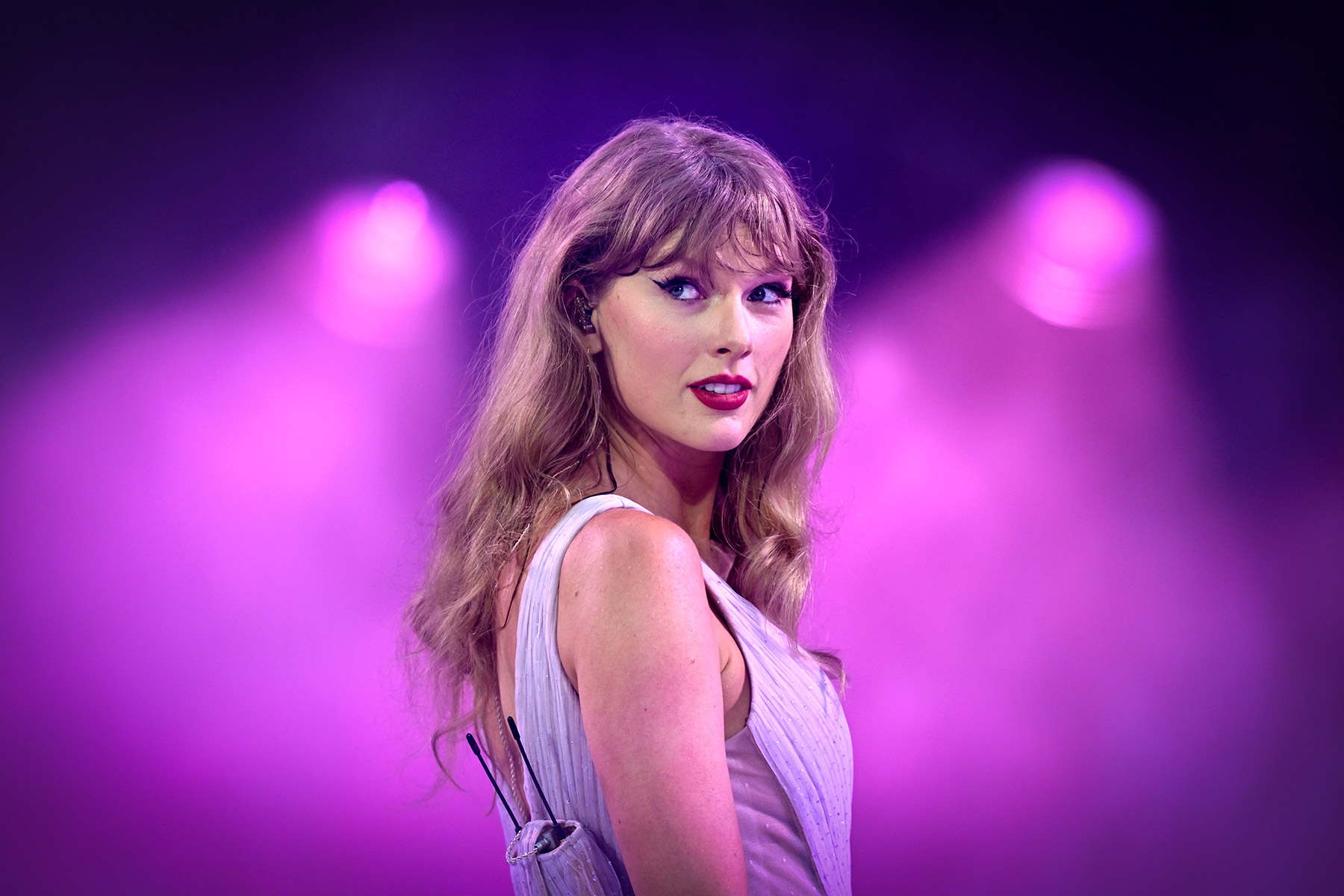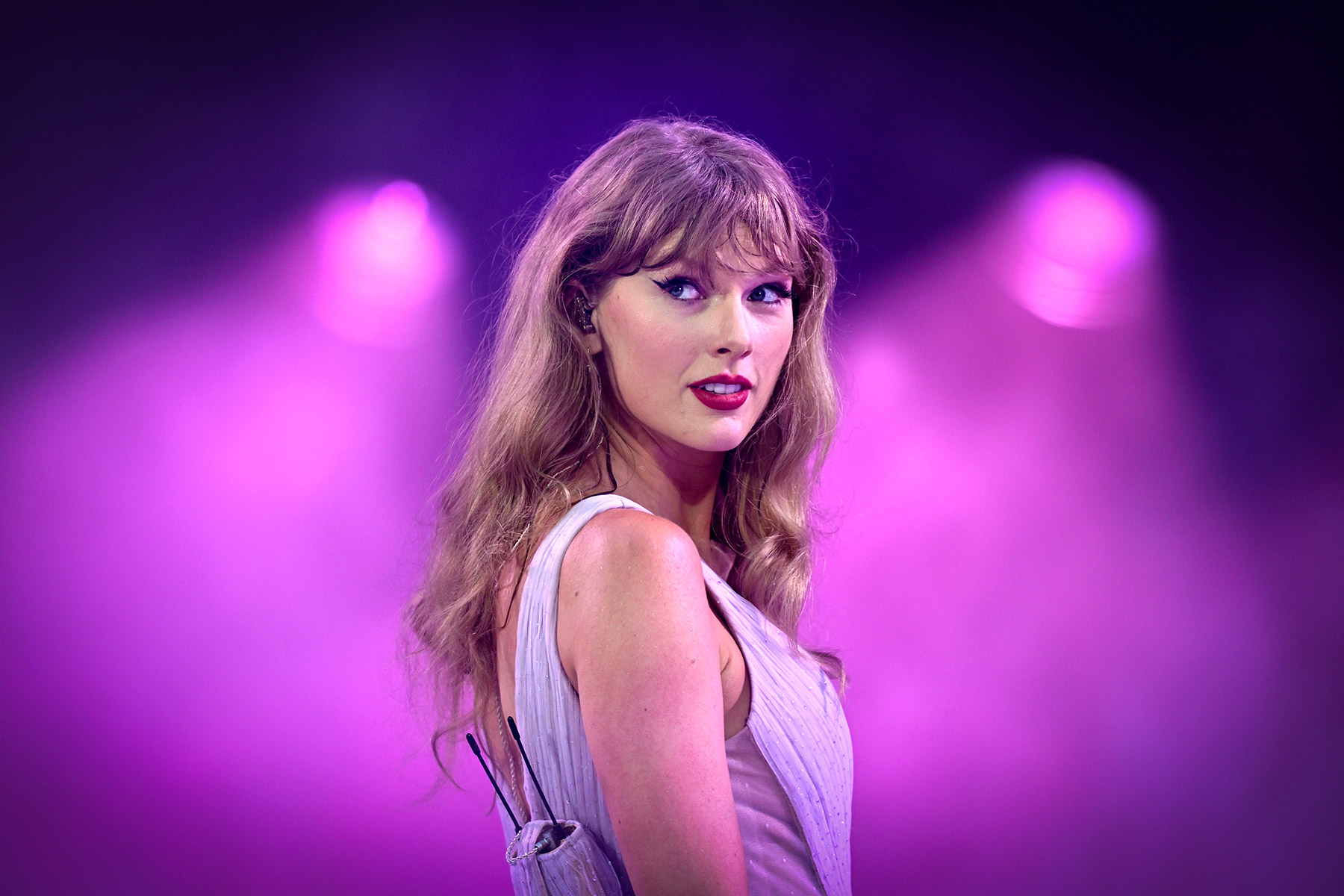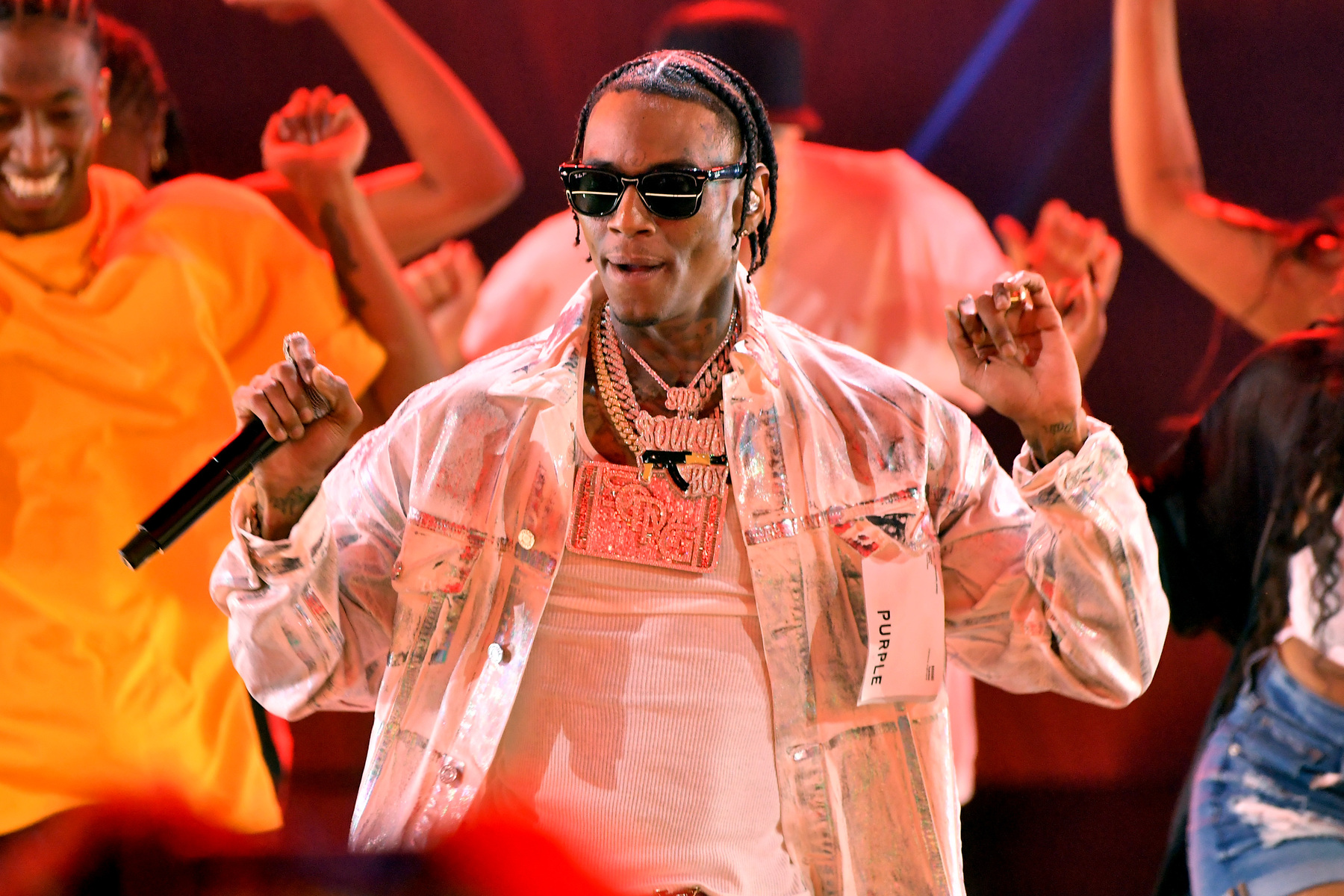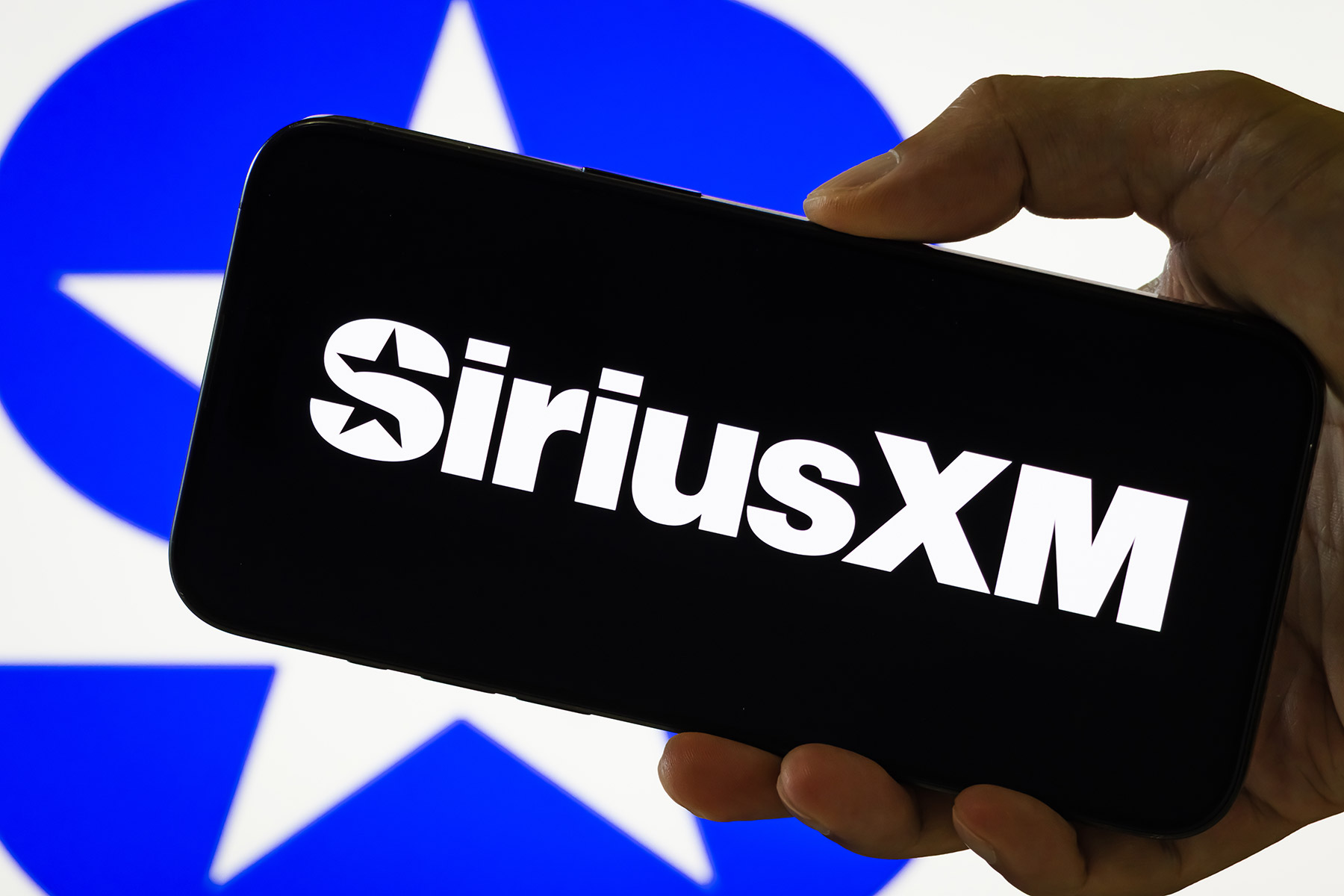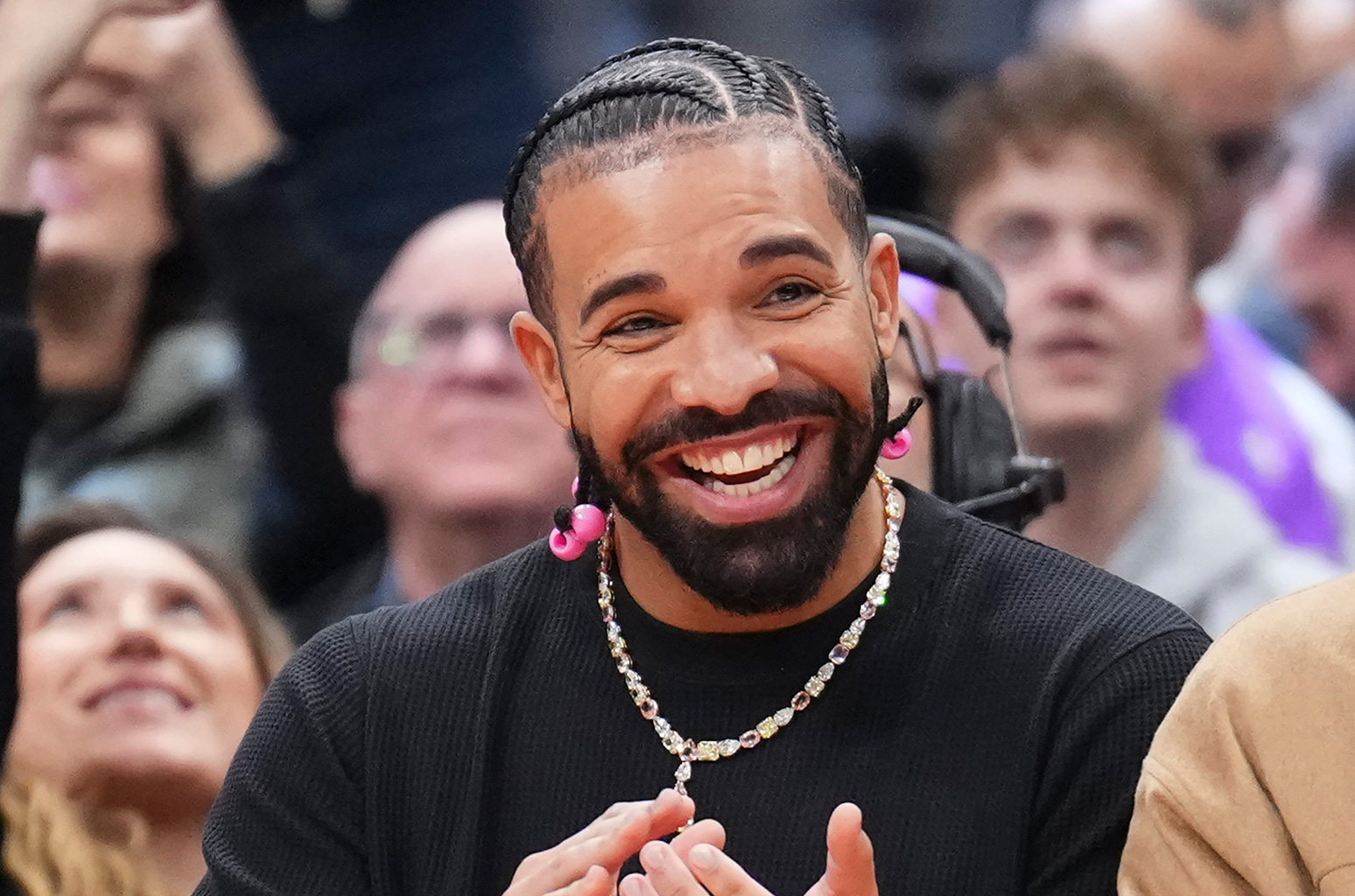Entertainment
Behind the Screens With PLAVE, K-Pop’s Biggest Completely Virtual Band Yet
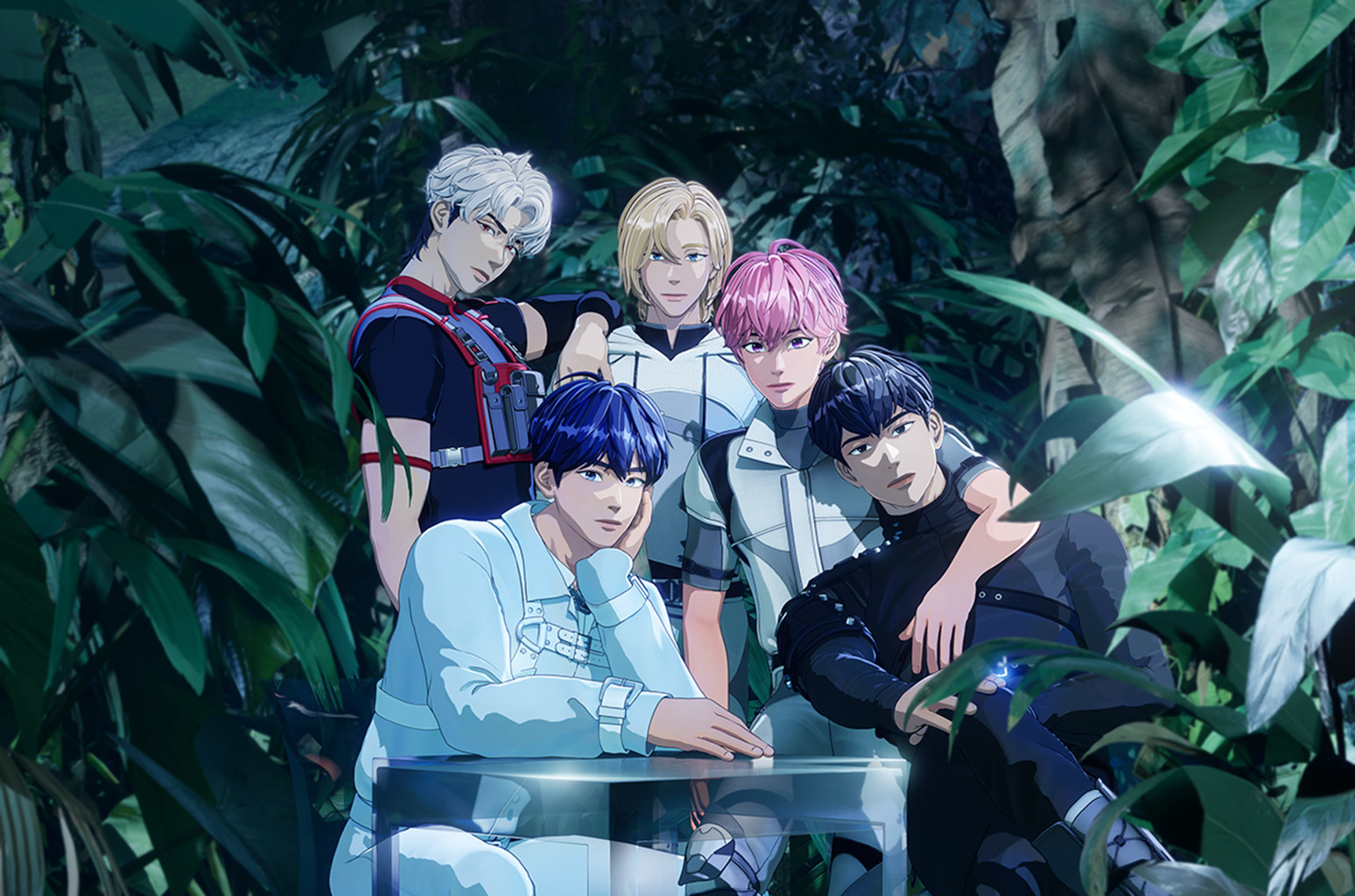
On April 13, the Circle Chart — South Korea’s longest-running music ranking, and its equivalent to the RIAA — unveiled its latest musician milestones. Alongside accomplishments by Blackpink’s Jisoo, NewJeans and BTS, stood PLAVE — a boy band whose members’ real-life identities are hidden behind digital avatars, but whose commercial performance and ambitions rival K-pop’s biggest human acts.
For almost three decades, Korean music companies have attempted to develop cyber singers, with mixed results. But none have broken through like PLAVE, which with its third mini‑album, February’s Caligo Pt. 1, became the first entirely virtual Korean act to surpass 1 million units sold, according to Circle Chart. But much like Gorillaz — the virtual British band created by Damon Albarn and Jamie Hewlett — the members of PLAVE are, behind the screens that project their avatars, real artists proving they can have real impact without revealing their faces or personal lives.
PLAVE was conceptualized in the unassuming Seoul office building that houses VLAST, an entertainment company that started as a for-hire computer graphics studio and is now a full-service production house for real-time graphics and virtual intellectual property that also provides label and management services to PLAVE, which is currently its sole musical group. Inside its scrappy yet cutting-edge production facility, and under CEO Lee “William” Sunggoo’s direction, the company imagined a virtual band in the style of manhwa, the Korean comics and webtoons that have become increasingly popular over the past two decades thanks in part to the otherworldly good looks of their characters. After successfully pitching the potential of virtual artists to the singer who would go on to voice PLAVE leader Yejun, VLAST recruited four more artists to round out the quintet as Bamby, Noah, Eunho and Hamin. “Each new member was recommended by someone who recognized their musical ability,” Lee says.
According to VLAST, the men behind PLAVE are all artists who previously pursued K-pop or R&B careers. Their virtual selves — brought to life in meticulous 2D detail through motion-capture rendering — sing, dance and rap like any K-pop stars would. But the real men of PLAVE also write, produce, choreograph and play instruments on tracks, a level of creative involvement usually seen in chart-toppers like BTS and Stray Kids that’s still atypical among idol groups.
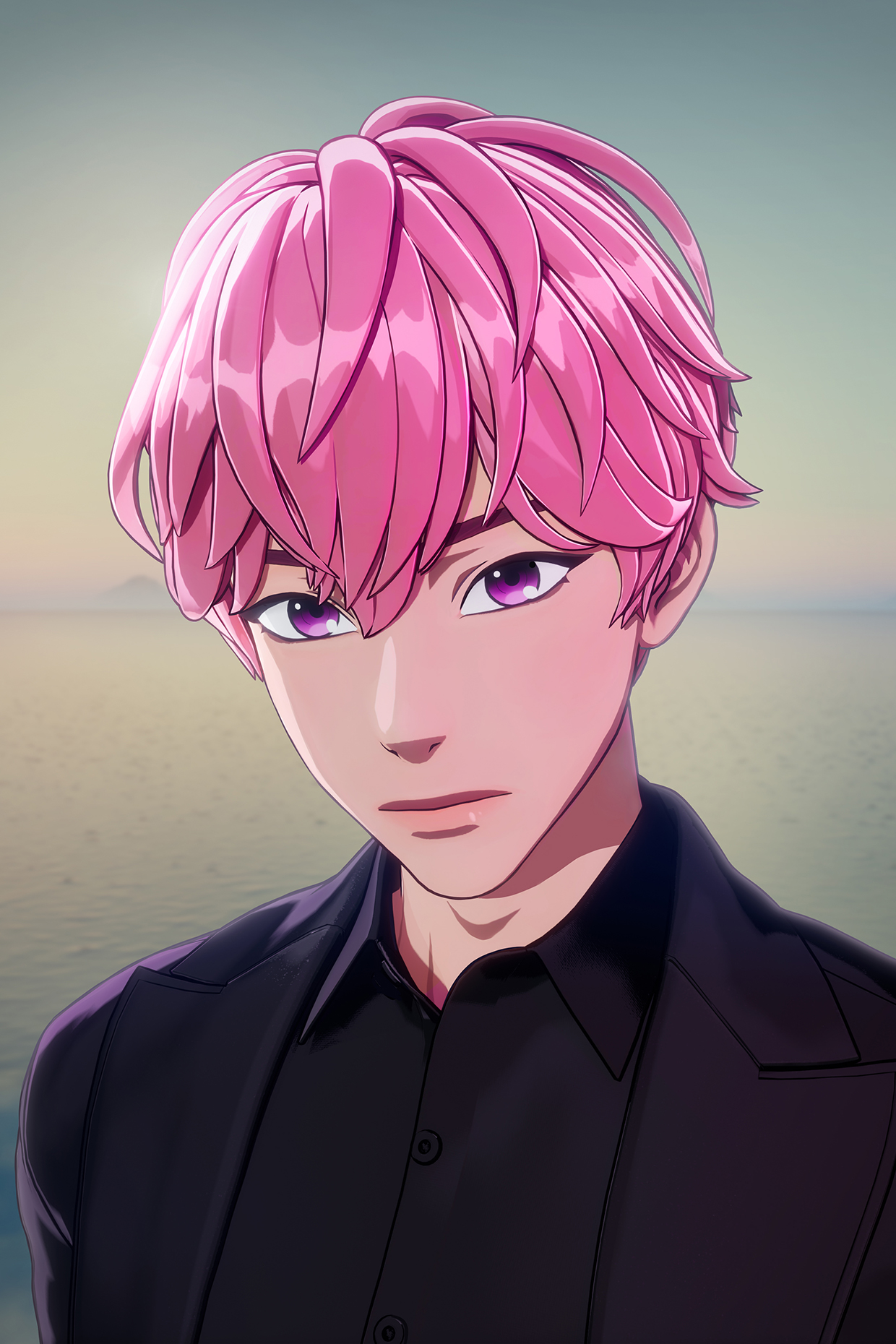 Bamby
Bamby Eunho
EunhoAt VLAST’s Seoul headquarters, creative teams huddle around screens, monitors and camera rigs, overseeing motion-capture stages and ensuring the PLAVE avatars and the actual musicians in the room with them have every dance move and facial expression synced. Through real-time animation, PLAVE can host frequent livestreams with fans and play concerts and festival appearances — so long as venues have a screen to display them.
The quintet’s real members can even see its fans — known as PLLI — as it performs from inside VLAST HQ and respond directly to them. So far, the group has headlined four concerts with in-person audiences, all in Seoul: First, it sold out two April 2024 shows at the city’s 2,500-seat Olympic Hall, then two dates the following October at the 11,000-capacity Jamsil Indoor Stadium, according to VLAST. In a review of the latter, the Korea JoongAng Daily lauded onscreen feats like watching PLAVE “driving a burning motorcycle to the stage,” but noted that the band’s inability to actually meet its audience “greatly limits the range of performance,” while technical glitches jolted fans from the fantasy.
(“We are always committed to delivering the best possible results,” VLAST says. “Enhancing PLAVE’s concert experience involves upgrading every element that allows the audience to feel fully immersed and connected — including minimizing technical issues.”)
“PLLI are the kinds of fans who truly see the real us,” Bamby tells Billboard in a video interview. At 5 foot 9, he’s PLAVE’s shortest member and sports pink hair and magenta eyes. (Whether these avatars’ attributes are in any way directly inspired by the people voicing them remains a secret.) Because of PLAVE’s virtual nature, Bamby continues, “We rely even more on communication platforms. We’re constantly curious about how they’re doing and how they’re experiencing our content.”
Since its March 2023 debut, PLAVE has earned more than 2.1 billion official on-demand global streams, according to Luminate. Before its latest single, “Dash,” became the first song by a Korean virtual group to reach the Billboard Global 200 in February 2025, PLAVE had entered the Global 200 Excl. U.S. chart with “Pump Up the Volume!” and “Way 4 Luv.”
 Hamin
HaminPLAVE joins a long history of virtual acts from Asia. In the mid-1990s, Japan pioneered virtual idols; the first from South Korea was Adam, a Sims-like cyber singer from information technology company Adamsoft who “debuted” in 1998 and whose first album, Genesis, sold a reported 200,000 copies. Adam led a small boom of cyber stars, but corporations ultimately abandoned them as costs exceeded earnings.
Virtual artists began making a comeback at the start of the 2020s after artificial intelligence and metaverse technology trends helped launch groups like Mave:, an AI-powered female quartet that virtual-artist management house Metaverse Entertainment launched in 2023. Korea’s Kakao Entertainment invested a reported 12 billion won (about $9.7 million at the time) in a partnership with Metaverse. While Mave: is strictly operated through technology, other groups with real humans behind virtual facades like PLAVE now exist, including female sextet Isegye Idol and 11-member girl group Itterniti. But none have broken through with significant sales or awards recognition like PLAVE.
“The initial investment is substantial,” Lee says. “But once that foundation is in place, there are certain advantages. Unlike traditional artists, we don’t have costs for things like hair, makeup or long-distance travel. Instead, our resources are directed toward technology, creative development and content production.”
PLAVE’s rapid ascent has attracted financial investment from HYBE and YG Entertainment, which double as strategic advisers on everything from the members’ vocal health to global rollout strategy. “As a company new to the entertainment industry, we valued getting advice and insights from established industry leaders with extensive experience,” Lee says. With global distribution from YG PLUS, Caligo Pt. 1 included the group’s first all-English track, “Island” (co-written by Adrian McKinnon, whose credits range from Rae Sremmurd to ENHYPEN). On June 16, PLAVE will release its debut Japanese single, “Kakurenbo (Hide and Seek),” following a 2024 agreement with HYBE Japan to support PLAVE’s expansion in the market.
“From an international fan’s point of view, it can sometimes be hard to fully grasp the emotions we want to express due to language barriers,” says PLAVE’s Eunho, who appears as a silver-haired rapper with fangs. “Some feelings just don’t translate perfectly, so we’re really glad we got to release an English track this time. We believe it helped us connect more deeply with our fans in English-speaking countries, and we plan to keep exploring multilingual projects.”
For now, VLAST has no plans for developing further virtual artists, focusing its energies entirely on PLAVE. Its current goals for the group include upgrading the concert experience, launching a dedicated mobile app, pushing to “reach more global fans” — including in Western markets — “and introduce them to what virtual artists can offer,” according to Lee.
“The biggest misconception we faced was that virtual idols like PLAVE were fully operated by AI,” he adds. “Even now, in some overseas markets where people aren’t yet familiar with PLAVE, that remains a common misunderstanding.”
 Noah
Noah Yejun
YejunThe way that blonde, blue-eyed Noah sees it, “one of the coolest parts about PLAVE is that we can do things on stage that other artists can’t — like magical effects or cinematic action scenes. People sometimes say, ‘But aren’t you AI? Doesn’t that make it easier?’ But the truth is, none of it is easy when you actually try it.” (He adds that some members even sustained injuries while rehearsing the “intense” choreography for “Dash,” created by Bamby and Hamin.)
As with so many ascendant pop stars, the real men behind PLAVE have faced their share of privacy invasion. Prying online fans have unearthed clues to the members’ real-life identities; last year, some began stalking them at VLAST and their homes, despite the company’s pleas for fans to respect PLAVE’s privacy and subsequent threat of legal action toward anyone disclosing personal information about the act. When rumors regarding the members’ real identities ran wild across social media and online forums around Caligo Pt. 1’s release, neither the band nor VLAST responded.
The group’s navy-haired, silver-eyed leader, Yejun, promises that in the coming year, “Fans will see us onstage a lot more. Up until now, we’ve had relatively few chances to perform live. In 2025, we want to change that — more concerts and more global tours.” (In early May, PLAVE announced three August dates at Seoul’s KPSO Dome.)
“All five members of PLAVE are passionate about music,” Lee explains. “We believe that high-quality music and performance are what distinguish us from other virtual artists. Creating compelling music is always one of our top priorities.”
“Our chemistry as a group, our direct communication with fans and our distinct musical identity are what have brought us this far,” the black-haired, black-eyed rapper Hamin says. Adds Yejun: “The bond we share as members — the connection, the stories we’ve built and the trust between us — that’s what makes PLAVE special.”
This story appears in the May 17, 2025, issue of Billboard.
Entertainment
Bad Bunny Carves Out a New Piece of Chart History With Latest Latin Airplay No. 1 ‘EoO’

Bad Bunny earns a fourth No. 1 on Billboard’s Latin Airplay chart from his album Debí Tirar Más Fotos to No. 1, as “EoO” lifts 3-1 on the chart dated Aug. 16. The Puerto Rican reaches a historic milestone, becoming the first to have at least four albums each generate four or more No. 1 hits on the overall Latin radio ranking.
“EoO” lands at the summit on Latin Airplay with 8.6 million in audience impressions (up 14%), earned in the United States during the Aug. 1-7 tracking week, according to Luminate. With the new win, his 29th total leader, Benito breaks from a tie with Daddy Yankee for the fourth-most No. 1s since the chart launched in 1994. He trails J Balvin with 38 No. 1s, the most overall, Ozuna with 35 champs, and Enrique Iglesias with 32.
“EoO” joins Debí Tirar Más Fotos’ previous chart-toppers – all earned since February (following the album’s Jan. 5 release): “EL ClúB,” “Baile Inolvidable” and “DtMF.” The feat mirrors Benito’s prior triumphs, as his 2023 album Nadie Sabe Lo Que Va a Pasar Mañana and 2020’s YHLQMDLG generated four No. 1s each, while 2022’s Un Verano Sin Ti delivered five.
Bad Bunny makes history as the first artist to have four albums each produce four or more No. 1 hits on the Latin Airplay chart. The Puerto Rican surpasses Romeo Santos, who previously earned three albums reaching this benchmark.
Here’s a breakdown of the artists (in alphabetical order) who have had at least one album produce four or more No. 1 hits on the Latin Airplay chart:
Artist, Album, No. 1s (Years the Songs Went to No. 1)
Bad Bunny, Un Verano Sin Ti, five, (2019-23)
Bad Bunny, YHLQMDLG, four, (2020)
Bad Bunny, Nadie Sabe Lo Que Va a Pasar Mañana, four, (2023-34)
Bad Bunny, Debí Tirar Más Fotos, four, (2025)
Enrique Iglesias, Enrique Iglesias, five, (1995-96)
Enrique Iglesias, Final (Vol. 1), five, (2015-21)
J Balvin, Vibras, four, (2017-18)
J Balvin, José, four, (2020-22)
Karol G, KG0516, five, (2020-21)
Maluma, Don Juan, four, (2021-23)
Prince Royce, Llamada Perdida, four, (2021-24)
Romeo Santos, Fórmula, Vol. 1, five, (2011-13)
Romeo Santos, Fórmula, Vol. 2, five, (2013-15)
Romeo Santos, Golden, four, (2017-18)
Shakira, Las Mujeres Ya No Lloran, seven, (2022-24)
Wisin, Victory, four, (2016-18)
Wisin & Yandel, La Historia De El Dúo, 1, four, (2006-09)
Beyond its Latin Airplay coronation, “EoO” also jumps 3-1 on the Latin Rhythm Airplay chart, for Benito’s 29th ruler there.
Entertainment
Cam’ron Pranks Omar Gooding by Hiring Actor for Fake Film: ‘Ain’t No Movie Coming Out’
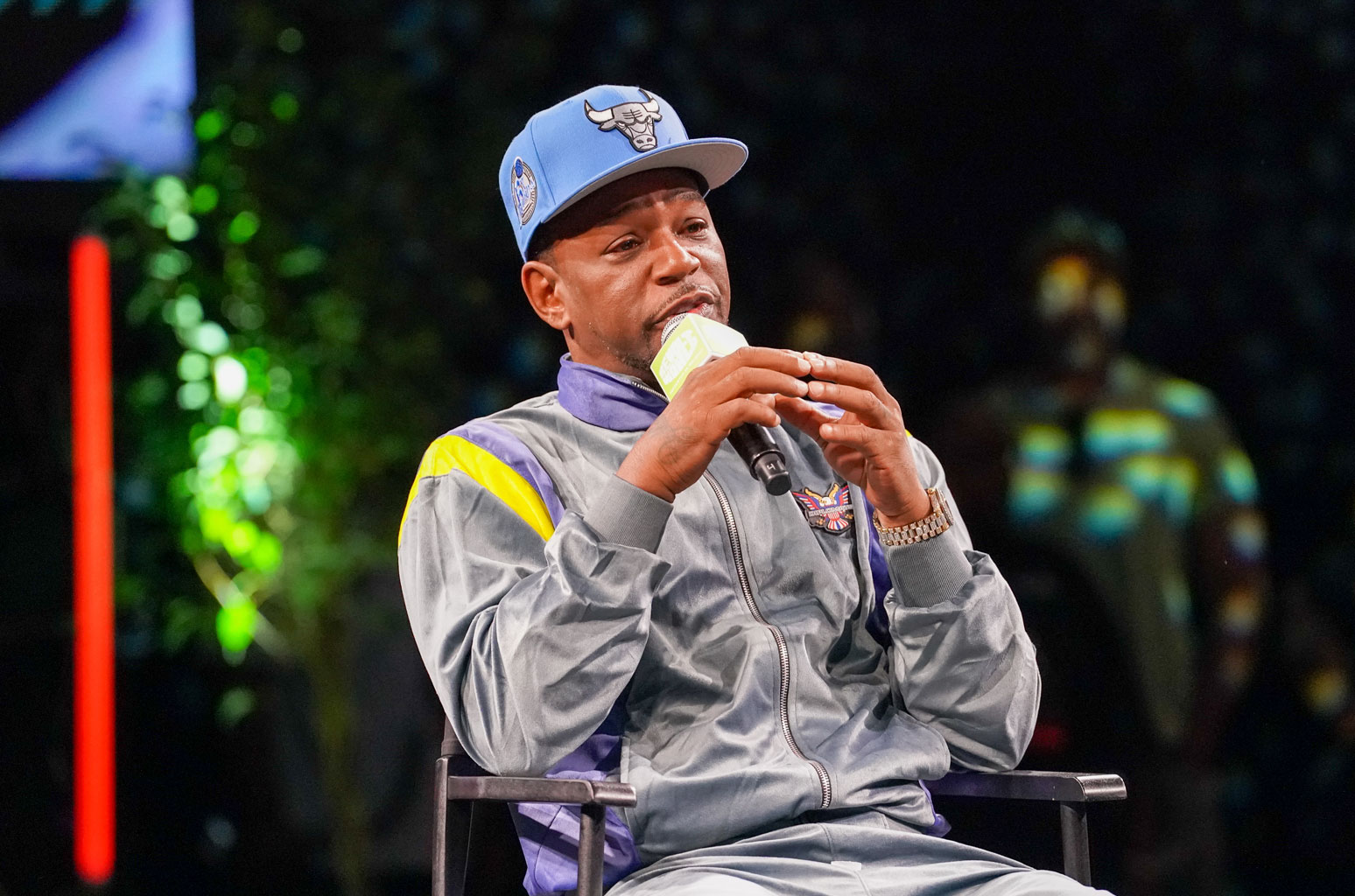
Cam’ron just upped the ante in his ongoing feud with actor Omar Gooding.
The rapper-turned-host recently took to Instagram to reveal that he pranked Gooding by hiring him as an actor for a fake movie.
“I booked the n—a to do a movie that’s never coming out like three weeks ago,” Cam told his followers. “Yeah, Omar. That movie that you flew down to Miami for? It ain’t no movie coming out. I booked you. And I was laughing at you behind the scenes. I was there. I was sitting there laughing at you. And you know what? Now you’re coming on Revolt tonight because you signed the paperwork. I could do whatever with the footage.”
He then finished the video by saying he wanted to hire Gooding for a baby shower and claimed that he’s going to start booking his enemies. “Now do another record; I’ma book you for my goddaughter’s baby shower,” he said. “Her sh– is in October and we’ll book you to do all the diss records. I’ll pay you for that too because what I’ma start doing is paying n—as just to laugh at them. It cost me $3,500 to do everything to book you — the hotel, your flight, all that sh–. It costs me $12,000 to $13,000 to go to the NBA game. I’d just rather laugh at you for $3,500.”
He added: “Be careful. This is my new sh–. It’s called, ‘Book My Opps.'”
Gooding then responded with his own video on Instagram saying that he wanted to apologize for what he was about to do to Cam in yet another diss record, saying, “It’s gon’ be diabolical,” before also thanking the Harlem rapper for the free trip to Miami and asked him to book him again.
“Keep booking, I’ma keep spendin’ it,” he said before ending the clip.
The back and forth between Gooding and Killa dates back to a December 2024 episode of Talk With Flee when Cam’ron mistakenly confused Omar Gooding with his older brother Cuba Gooding Jr. by adding the Jr. suffix after the younger Gooding’s name during a conversation with 50 Cent about certain Black actors not having consistent work unless someone like 50 hires them.
“No disrespect to nobody I’m talking about,” Cam said to the Queens filmmaker. “Like Ving Rhames, you sitting around, or Omar Gooding Jr., y’all n—as sitting around — I would have saved my money and shot my own sh– by now — but the Black actor has to sit around for a 50 Cent or somebody in your lane to come pick them up to put them in something.”
Omar Gooding has released three diss records (and counting) aimed at Cam’ron.
Entertainment
Drake Wants to See Kendrick’s Record Deal & UMG CEO’s Emails in ‘Not Like Us’ Lawsuit (UPDATED)
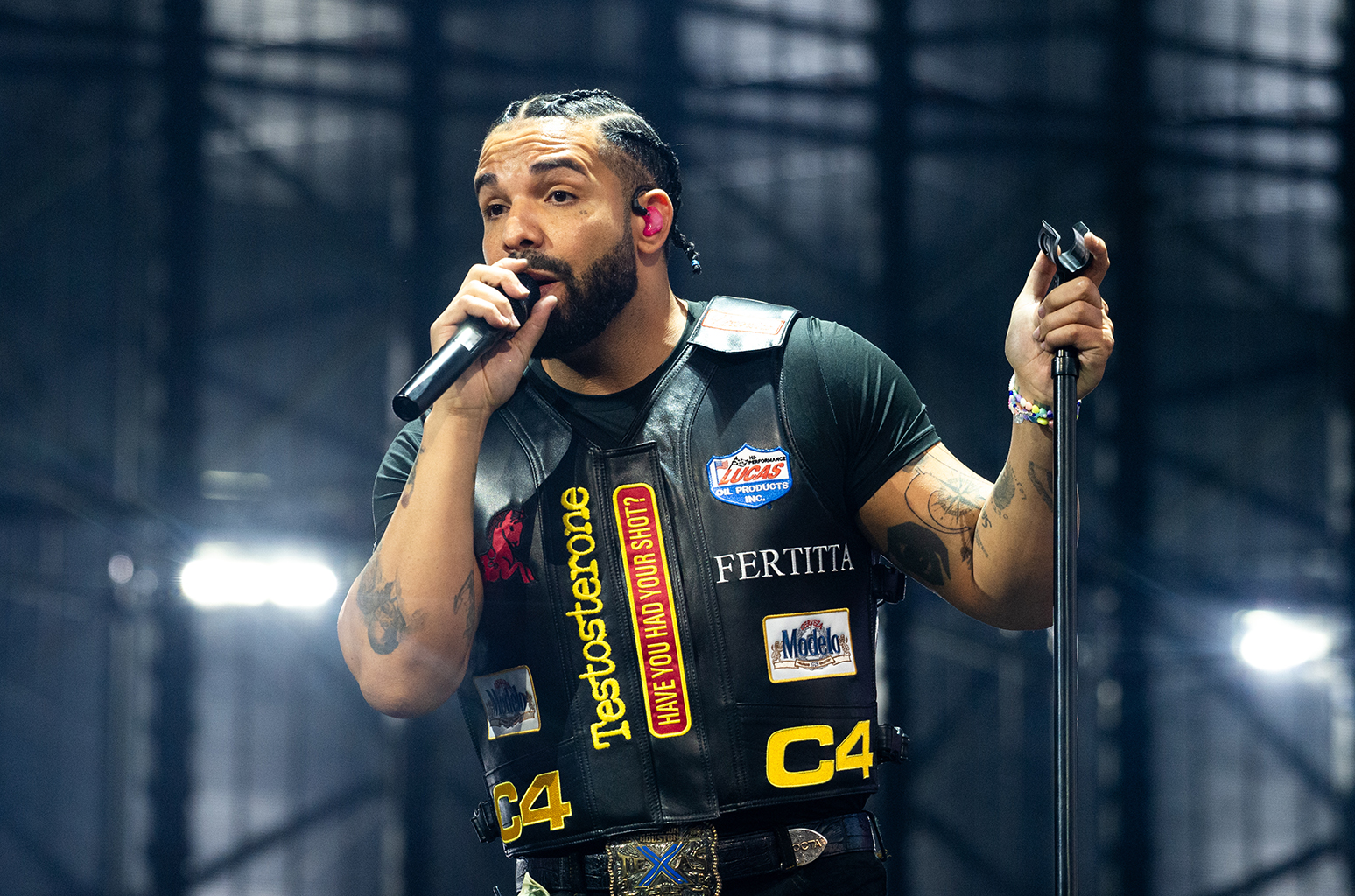
Drake’s lawyers are trying to get their hands on a swath of potentially relevant evidence in their lawsuit over Universal Music Group’s promotion of the chart-topping Kendrick Lamar diss track “Not Like Us,” including Lamar’s record deal and CEO Lucian Grainge’s emails about the song.
Discovery is underway in Drake’s lawsuit accusing UMG of plotting to boost the popularity of “Not Like Us,” Lamar’s hit 2024 Interscope Records track that called the Canadian superstar (Aubrey Drake Graham) a “certified pedophile.” Interscope is a subsidiary of UMG, as is Drake’s label, Republic Records.
In the discovery phase of litigation, each side sifts through its documents and turns over relevant files to the other. But UMG has refused to produce much of what Drake’s team has requested.
Drake’s lawyers are now seeking court orders forcing UMG to turn over the evidence they want, including an unredacted version of Lamar’s contract with Interscope. In a series of motions filed Tuesday (Aug. 12), attorney Michael Gottlieb says the 22-page record deal produced by UMG is almost entirely redacted, “rendering it virtually unreadable and incomprehensible.”
UMG has also refused to turn over emails and text messages from Grainge, claiming the CEO had “no meaningful involvement” in the release or promotion of “Not Like Us.” Gottlieb said on Tuesday that the company’s refusal “is unsupported by law and would prejudice plaintiff’s ability to test and prove his claims.”
“Plaintiff’s amended complaint contains numerous allegations specific to Grainge, including his role in and knowledge of the scheme to defame and harass plaintiff, and UMG’s use of deceptive business practices regarding the same,” writes Gottlieb. “UMG’s insistence on shielding Grainge from document discovery is unfair, unwarranted and inconsistent with fundamental principles of discovery.”
Gottlieb says Grainge holds a “position of control” over artists like Lamar and that, as CEO, he approved the release and promotion of “Not Like Us.” As for Grainge’s supposed motivation for defaming Drake, Gottlieb says the executive is “well known for the encouragement of competition between the UMG record labels” and that the company had an incentive to devalue Drake’s brand in order to gain negotiating leverage ahead of upcoming contract extension talks.
“If, as UMG claims, Grainge had ‘no meaningful involvement in the matters and decisions at issue in this litigation,’ then UMG will have little, if anything, to produce to plaintiff from his files, and the review process would impose minimal burden on UMG,” adds Gottlieb.
Other evidence sought by Drake’s legal team on Tuesday includes documents about Interscope’s financial profits, the valuation of Lamar’s catalog and the compensation of label CEO John Janick.
Gottlieb also argues that UMG should produce information about whether it has ever censored or declined to promote content that it deemed defamatory. Specifically, the court filings suggest that UMG-owned label Def Jam may have cut some of the more offensive verses from Pusha T’s own 2018 Drake diss track, “The Story of Adidon.”
“Such documents would reveal why, and under what circumstances, UMG believes it is appropriate to censor its artists’ expression, which plaintiff could evaluate alongside UMG’s decisions regarding ‘Not Like Us,’” writes Gottlieb. “UMG’s past practice, and knowledge regarding prior defamatory material it has refused to publish, would be highly probative of UMG’s knowledge here.”
A rep for UMG did not immediately return a request for comment on Tuesday.
UMG has vehemently denied that it defamed Drake or did anything untoward in its promotion of “Not Like Us.” The company says Drake is just embarrassed after losing his very public rap battle with Lamar and is now trying to “save face” and “salve his wounds” with misguided litigation.
Judge Jeannette A. Vargas in New York federal court is currently weighing UMG’s motion to dismiss the case outright as legally invalid. The judge held a hearing earlier this summer, and her ruling could come any day now.
This story was updated on Aug. 12 at 8:08 p.m. ET to add information about additional discovery sought by Drake’s team.
-

 Entertainment5 months ago
Entertainment5 months agoNew Kid and Family Movies in 2025: Calendar of Release Dates (Updating)
-
Tech5 months ago
The best sexting apps in 2025
-

 Tech6 months ago
Tech6 months agoEvery potential TikTok buyer we know about
-
Tech6 months ago
iOS 18.4 developer beta released — heres what you can expect
-

 Politics6 months ago
Politics6 months agoDOGE-ing toward the best Department of Defense ever
-

 Tech6 months ago
Tech6 months agoAre You an RSSMasher?
-

 Politics6 months ago
Politics6 months agoToxic RINO Susan Collins Is a “NO” on Kash Patel, Trashes Him Ahead of Confirmation Vote
-
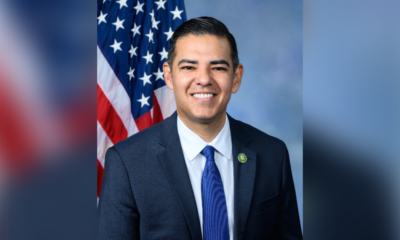
 Politics6 months ago
Politics6 months agoAfter Targeting Chuck Schumer, Acting DC US Attorney Ed Martin Expands ‘Operation Whirlwind’ to Investigate Democrat Rep. Robert Garcia for Calling for “Actual Weapons” Against Elon Musk


